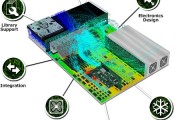 2016-12-15
2016-12-15
1 in 10 design engineers are still relying on purely physical prototypes, potentially adding significant, unnecessary costs to their designs. That’s according to new research from 6SigmaET, which surveyed over 350 engineers working in industrial, consumer and mass-produced electronics.
Continue reading →
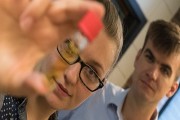 2016-09-29
2016-09-29
Glow-in-the-dark stickers, weird deep-sea fish, LED lightbulbs — all have forms of luminescence. In other words, instead of just reflecting light, they make their own
Continue reading →
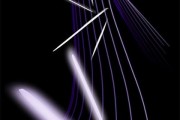 2016-09-08
2016-09-08
“Promising” and “remarkable” are two words U.S. Department of Energy’s Ames Laboratory scientist Javier Vela uses to describe recent research results on organolead mixed-halide perovskites.
Continue reading →
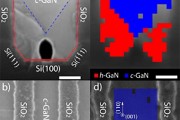 2016-08-01
2016-08-01
Researchers at the University of Illinois at Urbana Champaign have developed a new method for making brighter and more efficient green light-emitting diodes (LEDs). Using an industry-standard semiconductor growth technique, they have created gallium nitride (GaN) cubic crystals grown on a silicon substrate that are capable of producing powerful green light for advanced solid-state lighting.
Continue reading →
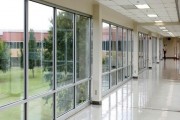 2016-08-01
2016-08-01
California Lighting Technology Center (CLTC) of UC Davis is developing an integrated building control system for existing commercial buildings. To date, few research efforts have accounted for the interdependence of lighting, fenestration and HVAC systems and the consideration of HVAC status in an integrated approach to optimize whole building energy-efficiency via a single, unified control platform.
Continue reading →
2016-06-14
Perovskite materials have shown great promise for use in next-generation solar cells, LEDs, sensors, and other applications, but their instability remains a critical limitation.
Continue reading →
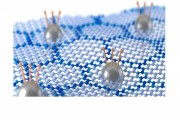 2016-06-13
2016-06-13
Discovering previously unobserved quantum states nested inside the quantum Hall effect in a single-layer form of carbon known as graphene, researchers have found evidence of a new state of matter that challenges scientists' understanding of collective electron behavior.
Continue reading →
2016-04-12
Researchers from the School of Medicine, Ajou University found that regular exposure to IR LED light reduces scars and improves the healing condition, compared to a controlled group, reported Healio.
Continue reading →
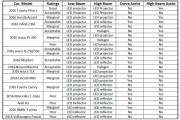 2016-03-31
2016-03-31
LED headlights found in 31 different midsize car models evaluated delivered a relatively mediocre performance out in the first headlight ratings conducted by The Insurance Institute for Highway Safety in the U.S.
Continue reading →
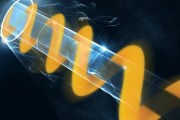 2016-03-30
2016-03-30
Using geometric phase inside lasers for the first time, researchers find a way to change the orbital angular momentum of laser beams.
Continue reading →
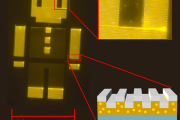 2015-08-10
2015-08-10
Recently, quantum dots (QDs)—nano-sized semiconductor particles that produce bright, sharp, color light—have moved from the research lab into commercial products like high-end TVs, e-readers, laptops, and even some LED lighting. However, QDs are expensive to make so there’s a push to improve their performance and efficiency, while lowering their fabrication costs.A team of researchers from the University of Illinois at Urbana-Champaign has recently produced some promising results toward that goal, developing a new method to extract more efficient and polarized light from quantum dots (QDs) over a large-scale area. Their method, which combines QD and photonic crystal technology, could lead to brighter and more efficient mobile phone, tablet, and computer displays, as well as enhanced LED lighting.
Continue reading →
 2015-01-22
2015-01-22
TrendForce, a global market intelligence firm, announced today that it has become the majority shareholder of Topology Research Institute, and has fully acquired operation and management rights. Kevin Lin, the CEO of TrendForce, will also hold the title of Chairman of Topology. Topology’s operations, brand, and managing staff will be under the same business model after the merger. LEDinside is a research division of TrendForce.
Continue reading →
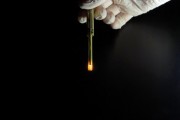 2014-09-22
2014-09-22
University of Utah physicists read the subatomic “spins” in the centers or nuclei of hydrogen isotopes, and used the data to control current that powered light in a cheap, plastic LED – at room temperature and without strong magnetic fields.
Continue reading →
 2016-12-15
2016-12-15
 2016-09-29
2016-09-29
 2016-09-08
2016-09-08
 2016-08-01
2016-08-01
 2016-08-01
2016-08-01
 2016-06-13
2016-06-13
 2016-03-31
2016-03-31
 2016-03-30
2016-03-30
 2015-08-10
2015-08-10
 2015-01-22
2015-01-22
 2014-09-22
2014-09-22